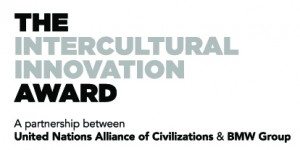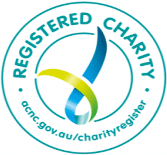I’ve seen the power of the arts to move, to educate, drive change and foster social cohesion many times. I experienced it intensely first hand, when I produced Crossings: Songs from the East in 2013.
The concert showcased a cross-cultural collaboration of traditional and improvised music spanning the Greek, Kurdish, Arabic and Persian traditions. It was an exciting coming-together for the first time of local Sydney-based musicians; four out of the five were first generation Australians from diverse cultural and linguistic backgrounds. They drew from both their musical heritage and their contemporary experience of multicultural Australia.
The audience, which we surveyed, said things like:
“Beautiful to see a coming together of cultures through the arts”…
“Brought back memories of home”…
“Wonderful! Especially watching the musicians improvising – working together… so much richness (and they say multiculturalism doesn’t work)! It is alive and brings so much richness to our lives and to Australia”…
The experience of that production impacted all involved, from the artists to the audience and everyone in between, in ways that only arts and cultural experiences can sometimes – on the level where words cease and only the senses and the human spirit exist. One comes away from an experience like that with a sense that something in them is a little different… a little changed.
As an audience member watching the Sydney Theatre Company’s latest production of The Secret River, I came away with exactly that feeling. I was shattered at the brutality of the story – the brutal truth in the story – but I was compelled to watch and listen.
I felt like I was bearing witness to a history not told often enough. In the author, Kate Grenville’s, words: “This book isn’t history, but it’s solidly based on history. Most of the events in the book “really happened” and much of the dialogue is what people really said or wrote.” Knowing this, I felt the weight of responsibility, like I was almost charged with the duty of carrying this history on, of re-telling it. So I made it my mission for days afterwards to tell everyone I met to go see the show.
It was hard to watch at times. The woman sitting to my left had her eyes closed for much of the massacre scene. It wasn’t explicit or visually disturbing – but it sat in that space – the space where words cease and only the senses exist. Clearly for the woman beside me, her senses were in overwhelm. I was grateful that the night I attended happened to be followed by the Q and A session with the actors and co-director afterwards – it was an opportunity for the audience to re-compose and debrief almost. More than that, it was a way to bring the savage racism of our history into the present.
The discussion that ensued was open and honest. The actors told of their own experiences of facing and witnessing racism today. Actor Ningali Lawford-Wolf told of how she was refused a ride by four taxi drivers on the street just outside the theatre. Richard Piper, who played the most savage of the white characters, talked of how the experience of being a part of this production changed him – made him reflect on times where he had been a bystander to racist incidences and had not acted. He spoke of the need for us all to speak up and take a stand in similar situations, and of his resolve to do differently next time. An audience member asked the questions: “What can we do? How can we do better when we leave this theatre?”. One of the younger cast members, Madeleine Madden, spoke about the power of the arts to move and affect change. Everyone on stage seemed to acknowledge a sort of shared social responsibility to tell the story with authenticity and sensitivity.
I came away with the feeling that the sentiment in that Q and A session was shared company-wide, and with 2 mins of online research I discovered the Sydney Theatre Company’s ‘Human Rights and Social Performance Statement’ As part of STC’s commitment to “operating as a responsible organisation” they state: “STC’s statement on Human Rights and Social Performance reflect our ability to uphold human rights within our organisation and our sphere of influence. We adhere to both international and local human rights legislation and reflect these in our human resources policies, practices and Code of Conduct.” Further down, in relation to audiences and the arts industry, it states: “We share our learning and promote human rights issues through giving voice to social issues by our choices in productions and our industry networks by contributing to conversations.”
This initiative – of writing the importance of social responsibility into the policies and strategic objectives of an organisation – is exactly what we need more of – especially in the arts and cultural industries, whose core ‘business’ is in the creation of meaning.
Go and see The Secret River if you can. Or read the book. Or watch the TV series. And share the story. Continue the conversation. It is our shared responsibility.
Review by Kiriaki Zakinthinos


